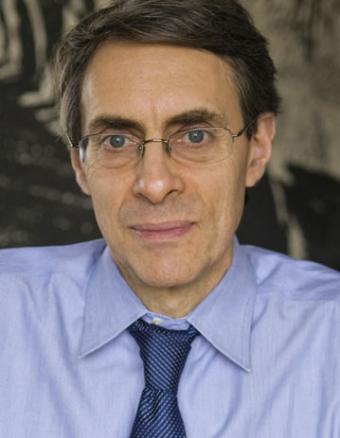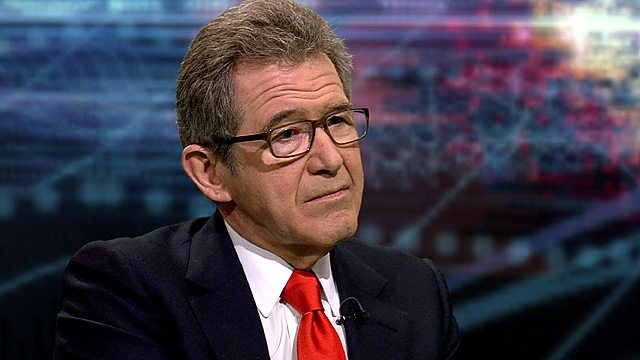Human rights overview: Anti-gay backlash, but progress too
Colin Stewart is a 45-year journalism veteran living in Southern…
In many of the 76-plus countries with anti-gay laws, LGBTI people have recently experienced a backlash from anti-LGBTI forces, even while the fight for LGBTI rights continues. But Ken Roth, executive director of Human Rights Watch, says that it’s important not to forget progress that has been made in ensuring justice for all.
Excerpts from a question-and-answer session with Roth on the World Economic Forum blog:
Q&A: How to tackle the backlash against gay rights?

Almost 2.8 billion people are living in countries where identifying as gay could lead to imprisonment, corporal punishment or even death. In stark contrast, only 780 million people are living in countries where same-sex marriage or civil unions are a legal right.
These figures, reported by the International Lesbian and Gay Association in May 2014, show there is still much to be done in the effort to attain universal rights for LGBT (lesbian, gay, bisexual and transsexual) communities worldwide. Yet there has also been significant progress over the past 10 years, and this too should be acknowledged.
What progress has there been on LGBT rights since you established Human Rights Watch’s LGBT rights programme 10 years ago?
There’s been enormous progress globally and locally. It’s important to note that the fight for LGBT rights is not a Western phenomenon; many of the governments at the forefront of the defence of LGBT rights are from the developing world. The historic LGBT resolution at the United Nations Human Rights Council, adopted in September 2014, was led by governments from the global south, primarily Latin America, and backed by others from all over the world, including South Africa.

Even governments usually opposed to human rights enforcement, such as Cuba, Venezuela and Vietnam, supported it.
Yet, because of this global support, we’re recently witnessing an intensifying backlash. To a large degree, this is due to the greater visibility of the LGBT community in societies that have begun to recognize their rights. But LGBT people are also convenient scapegoats for embattled leaders, who are trying to rally support from more conservative sectors of their society. Whether it’s Uganda, Nigeria or Russia, the decision to scapegoat the LGBT community is an outcome of serious challenges to the regime, for widespread corruption or abusive authoritarianism.
The status of the LGBT community is a good litmus test for the status of human rights in society more broadly, precisely because it is such a vulnerable minority – similar to the proverbial canary in the coal mine. Where the rights of LGBT people are undermined, you can be sure that the rights of other minorities and critical members of civil society will soon also be in jeopardy.
When you look back over the last decade, what do you think was the main driver for change, in regulation and people’s mindset?
Broader changes in society have driven some of the greater recognition of LGBT rights, such as more equitable relations between genders, the rights revolution generally and the greater respect for individual autonomy. Within that context, you saw the LGBT population gradually coming out, so people suddenly discovered that they had a gay brother or son or neighbour or close colleague, which started shaping public perception and reinforced the social changes.
It’s easy for bigotry to exist in a context of ignorance, but when you’re being bigoted toward a close friend or neighbour, you start thinking: “Maybe LGBT people are really just people; maybe I should recognize their rights. Why can’t they love whom they choose, just like I can?” Yet the lingering fear of ‘the other’ is also applicable to some of the other trends we see in this year’s Outlook on the Global Agenda [from the World Economic Forum] – like increasing nationalism and anti-immigrant sentiment. …
In Uganda for example, the LGBT community is scapegoated in an artificial context – the narrative is that homosexuality in general is a foreign import, not part of the traditional culture. There’s a great irony here because much of that homophobia is the product of interventions by a well-financed US evangelical movement, and the prohibitions in place are a continuation of the British colonial-era bans on same-sex relations. Moreover, it’s not like the West has been secretly airdropping gays into other cultures – an LGBT population has existed in all societies for all time; gays have simply been more or less open, depending on the politics and the mentality of the moment.
Given the backlash, who should we be targeting to combat it?

Begin with the leaders doing the scapegoating and their policies. In response to the homophobic environment created around the Sochi Olympics, the International Olympic Committee recently announced new rules for the selection of host cities, including a requirement of full non-discrimination. That implicitly says that if Russia had been fostering the homophobic environment at the time of selection, Sochi would not have been selected. That’s a very important signal to send.
At the same time, there must be a broader coordinated educational effort. Anything that helps to increase the visibility of LGBT people, to move beyond past stereotypes and ignorance, to show that gays occupy the same range of positions in life and society as everyone else, that will help to make societal change happen more quickly. …
What role can non-governmental stakeholders play, such as businesses?
Business is a very important stakeholder in this debate. A significant section of consumers insist on respect for LGBT rights, so the global corporate giants can’t get away with permitting discrimination in the workplace or embracing homophobia in any sense. That becomes important, because these companies operate globally and so can become oases of respect for LGBT rights, even in societies where the government hasn’t caught up with the agenda.

Where business currently falls short, though, is in embracing role models. Lord Browne regretted not being more open about being gay when he was CEO of BP, and it’s sad that many corporate leaders still feel that they have to live in the closet. The more that corporations can highlight the LGBT people among their leadership, the quicker these societal transformations will be encouraged. That said, if you look at the number of business or political leaders coming out now compared to a decade ago, we’re seeing good progress.
Do you think the international community is a good driver for LGBT rights?
Positive action is taken at several different levels – local, national and global. What happened at the UN is important as part of the effort to legitimise LGBT rights; to have such an overwhelmingly positive vote is an important rebuke to those governments that want to pretend homophobia and bigotry are consistent with international human rights standards. They’re not.
Other things the international institutions can do is to collect information on the treatment of the LGBT community worldwide to probe governments that fall short of recognition of its rights. Perhaps most critical, though, is to defend the political space in which local human rights and LGBT activists operate. International multi-stakeholder organizations, such as the World Economic Forum, could clearly play a leadership role in this debate, by holding sessions devoted to trends in the rights of LGBT people. For example, a session on best business practices with respect to LGBT rights would give an opportunity to talk about, not just the formal non-discrimination steps, but also the more personal leadership role that corporations might play.
What kind of challenges have civil rights groups faced over the past decade?

Ten years ago we created a formal LGBT programme within Human Rights Watch, because we wanted to make the point that LGBT rights are an essential part of the human rights agenda. One of our first real interventions took place in Egypt, where there had been a crackdown and a raid on what was called the Queen Boat; this was literally a boat in the Nile that had been a gay bar, and the occupants were arrested and brutally beaten by the police.
Human Rights Watch put out a protest, but a few of our Egyptian colleagues objected, claiming that homosexuality was immoral conduct, and the repression of gays was not a human rights issue. They feared that their broader human rights work would be discredited if they took on LGBT rights. Now times have changed and you don’t hear that argument anymore; there is a vigorous Egyptian movement that embraces LGBT rights as part of its broader human rights programme. But this shows the pressures that civil society groups can face as they take on an area that has been circumscribed by homophobia and regressive views. …
What is your biggest hope and biggest concern for the future of LGBT rights?
Obviously, this backlash is my biggest concern at the moment. In terms of hope, homophobia is still one of the last acceptable forms of bigotry in some regions, and my hope is that that changes.
For more information, read the full Q&A on the World Economic Forum blog.
Related articles
- Global conflict: Gay rights, repression (1. Russia; 2. More) (76crimes.com)
- Appeal to Cameroon: Stop anti-LGBTI violence (76crimes.com)
- Much talk, a little action on LGBT rights worldwide (76crimes.com)
- Protesters call for repeal of Jamaica’s anti-gay law (76crimes.com)
- ‘A new low by Cameroon’s government’ (76crimes.com)
- Archive of this blog’s articles related to Human Rights Watch




Human rights day; reflections on a train wreck